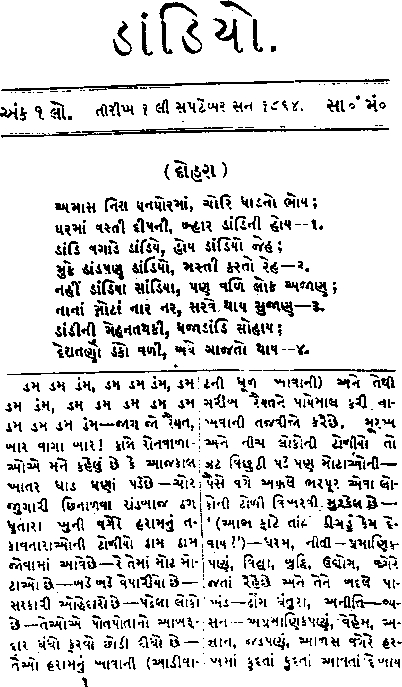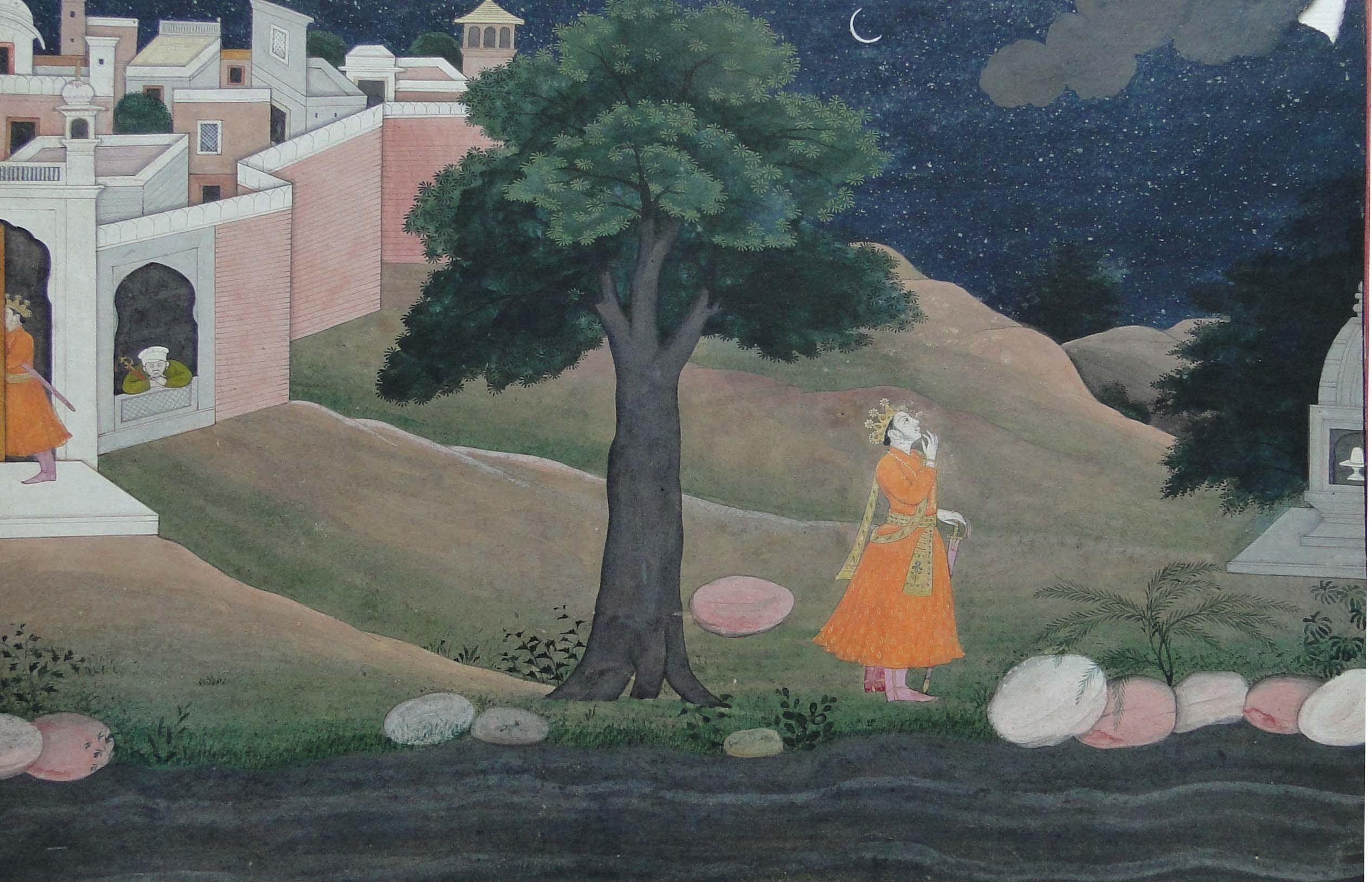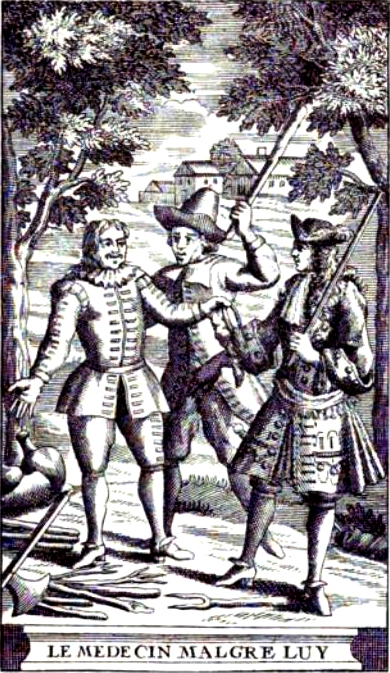|
Navalram Pandya
Navalram Laxmiram Pandya (Gujarati: નવલરામ) (9 March 1836 – 7 August 1888) was a Gujarati critic, playwright, poet, essayist, editor, educationist and a social reformer. He is considered to be a most important figure in modern Gujarati literature. The first humourist, the first historical dramatist, the first critic and a leading scholar of his age, Navalram was the first to herald the new generation of writers like Manilal Dwivedi, Govardhanram Tripathi and Narsinhrao Divetia. His writings covered numerous areas, including philosophy, patriotism, reformation, education, journalism, grammar and literature. Life Navalram was born on 9 March 1836 in Surat (now in Gujarat) to Nandkor and Lakshmiram Pandya. Physically weak as a child, he didn't take much interest in games and was introvert in nature. At the age of eleven, he passed the final vernacular exam and got admission in an English school as a free merit scholar. He passed his matriculation exam in 1853. Thoug ... [...More Info...] [...Related Items...] OR: [Wikipedia] [Google] [Baidu] |
Surat
Surat is a city in the western Indian state of Gujarat. The word Surat literally means ''face'' in Gujarati and Hindi. Located on the banks of the river Tapti near its confluence with the Arabian Sea, it used to be a large seaport. It is now the commercial and economic center in South Gujarat, and one of the largest urban areas of western India. It has well-established diamond and textile industry, and is a major supply centre for apparels and accessories. About 90% of the world's diamonds supply are cut and polished in the city. It is the second largest city in Gujarat after Ahmedabad and the eighth largest city by population and ninth largest urban agglomeration in India. It is the administrative capital of the Surat district. The city is located south of the state capital, Gandhinagar; south of Ahmedabad; and north of Mumbai. The city centre is located on the Tapti River, close to Arabian Sea. Surat will be the world's fastest growing city from 2019 to 2035, acco ... [...More Info...] [...Related Items...] OR: [Wikipedia] [Google] [Baidu] |
Maharaj Libel Case
The Maharaj Libel Case was an 1862 trial in the Bombay Court (then just in transition from a Supreme Court to a High Court) in British India. The case was against Nanabhai Rustomji Ranina and Karsandas Mulji, they alleged that & their public accusation is that the religious leaders of Pushtimarg had had sexual liaisons with women devotees, & it was libelous for petitioner. Background The case arose when the plaintiff, Jadunathji Brijratanji Maharaj, a religious leader, filed a case of libel against a reformer and journalist Karsandas Mulji for writing an article in the newspaper, ''Satyaprakash'', titled (). In this article he questioned the values of a Hindu sect called the Pushtimarg or Vallabhacharya Sampradaya. The article was claimed to be libelous by the plaintiff. In particular were accusations that Jadunathji had sexual liaisons with women followers and that men were expected to show their devotion by offering their wives for sex with the religious leaders. The libel ca ... [...More Info...] [...Related Items...] OR: [Wikipedia] [Google] [Baidu] |
Mari Hakikat
''Mari Hakikat'' () is the autobiography of Narmadashankar Dave, popularly known as Narmad, a Gujarati author from Surat in 19th century India. It was the first autobiography to be written in the Gujarati language. Written in 1866, it was published posthumously in 1933 on the centenary of Narmad's birth. Origin and publication history Narmad wrote ''Mari Hakikat'' in 1866. He explained his intentions at the start of his autobiography; He added that his life will give some message to people. Narmad was candid and outspoken and he believed that his thoughts and works are exemplar. To give insights in his mind and world around him, he chose to write as openly as possible about events in his life, people connected with those events, his relations with those people and the results of those relationships. Narmad had published a collection of his essays as ''Narmagadya: Book 1'' in 1865. ''Suratni Mukhatesar ni Hakikat'' was published as ''Narmagadya: Book 2: Issue 1'' in 1866 from page ... [...More Info...] [...Related Items...] OR: [Wikipedia] [Google] [Baidu] |
Narmad
Narmadashankar Lalshankar Dave () (24 August 1833 – 26 February 1886), popularly known as Narmad, was an Indian Gujarati-language poet, playwright, essayist, orator, lexicographer and reformer under the British Raj. He is considered to be the founder of modern Gujarati literature. After studying in Bombay, he stopped serving as a teacher to live by writing. During his prolific career, he introduced many literary forms in Gujarati. He faced economic struggles but proved himself as a dedicated reformer, speaking loudly against religious and social orthodoxy. His essays, poems, plays and prose were published in several collections. His ''Mari Hakikat'', the first autobiography in Gujarati, was published posthumously. His poem ''Jai Jai Garavi Gujarat'' is now the state anthem of Gujarat state of India. Early life Narmad was born in Surat, Gujarat on 24 August 1833 to Lalshankar and Navdurga. His family home in Amliran, Surat was destroyed in the great fire of 1837 but was late ... [...More Info...] [...Related Items...] OR: [Wikipedia] [Google] [Baidu] |
Meghadūta
} ''Meghadūta'' ( sa, मेघदूत literally ''Cloud Messenger'') is a lyric poem written by Kālidāsa (c. 4th–5th century CE), considered to be one of the greatest Sanskrit poets. It describes how a ''yakṣa'' (or nature spirit), who had been banished by his master to a remote region for a year, asked a cloud to take a message of love to his wife. The poem become well-known in Sanskrit literature and inspired other poets to write similar poems (known as "messenger-poems", or Sandesha Kavya) on similar themes. Korada Ramachandra Sastri wrote ''Ghanavrttam,'' a sequel to ''Meghduta.'' About the poem A poem of 120 stanzas, it is one of Kālidāsa's most famous works. The work is divided into two parts, Purva-megha and Uttara-megha. It recounts how a yakṣa, a subject of King Kubera (the god of wealth), after being exiled for a year to Central India for neglecting his duties, convinces a passing cloud to take a message to his wife at Alaka on Mount Kailāsa in the Himā ... [...More Info...] [...Related Items...] OR: [Wikipedia] [Google] [Baidu] |
Kalidasa
Kālidāsa (''fl.'' 4th–5th century CE) was a Classical Sanskrit author who is often considered ancient India's greatest poet and playwright. His plays and poetry are primarily based on the Vedas, the Rāmāyaṇa, the Mahābhārata and the Purāṇas. His surviving works consist of three plays, two epic poems and two shorter poems. Much about his life is unknown except what can be inferred from his poetry and plays. His works cannot be dated with precision, but they were most likely authored before the 5th century CE. Early life Scholars have speculated that Kālidāsa may have lived near the Himalayas, in the vicinity of Ujjain, and in Kalinga. This hypothesis is based on Kālidāsa's detailed description of the Himalayas in his ''Kumārasambhava'', the display of his love for Ujjain in ''Meghadūta'', and his highly eulogistic descriptions of Kalingan emperor Hemāngada in '' Raghuvaṃśa'' (sixth ''sarga''). Lakshmi Dhar Kalla (1891–1953), a Sanskrit scholar a ... [...More Info...] [...Related Items...] OR: [Wikipedia] [Google] [Baidu] |
Balwantray Thakore
Balwantray Kalyanray Thakore ( gu, બળવંતરાય કલ્યાણરાય ઠાકોર) (23 October 1869 – 2 January 1952), popularly known as B. K. Thakore ( gu, બ.ક.ઠાકોર), was a poetry teacher and one of the great pioneers of the ''Pandit yug'', during the turn of the twentieth century period in Gujarati literature. Known as 'Ballukaka' in his intimate circle, he played a key role in the development of modern Gujarati poetry. Early life The son of a lawyer, Thakore was born on 23 October 1869 in Porbandar, and later moved to Bharuch in Gujarat. After attending school in Bharuch, he went to Rajkot for further education where he became acquainted with Navalram Pandya, a contemporary of Narmad, Mahatma Gandhi and Manishankar Bhatt 'Kant'. While studying at Rajkot, he came under the influence of Christianity. In his later life he also appreciated certain principles of Islam. At age 18, he married Chandramani. He later remarried after the death of his ... [...More Info...] [...Related Items...] OR: [Wikipedia] [Google] [Baidu] |
Karan Ghelo
''Karan Ghelo: Gujarat's Last Rajput King'' ( gu, કરણ ઘેલો: ગુજરાતનો છેલ્લો રજપૂત રાજા) is a Gujarati historical novel by Nandshankar Mehta. It was published in 1866 and was the first original novel in Gujarati.In 1862, Parsi author Sorabshah Dadabhai Munsafa published ''Hindustan Madhyeñun Jhumpadu'' (Gujarati:હિન્દુસ્તાન મધ્યેનું ઝૂંપડું), a sixty nine page story as a novel. It was a Gujarati translation of The Indian Cottage or A Search After Truth' (1791), an English translation by Edward Augustus Kendall of the French work ''La Chaumière Indienne'' (1790) by Jacques-Henri Bernardin de Saint-Pierre. As it was a translation of a translation, its claim as the first novel in Gujarati is disputed and ''Karan Ghelo'' is considered as the first original novel of Gujarati language. SePage 386 History of Indian Literature.Pollock, Sheldon. ''The Language of the Gods in ... [...More Info...] [...Related Items...] OR: [Wikipedia] [Google] [Baidu] |
Ras Mala
''Râs Mâlâ: Hindoo Annals of the Province of Goozerat, in Western India'' is a 1856 historical work by British colonial administrator Alexander Kinloch Forbes. Divided in two volumes, the work has four sections documenting the history and chronicles from 8th century Gujarat (now in India) to arrival of British and folk literature of Gujarat as well as an historical account of the place and people he came to know during his stay in Gujarat. It was later translated into Gujarati in 1869. Origin Alexander Kinloch Forbes (1821–1865), a British colonial administrator, appointed in 1842 came to Ahmedabad as an assistant judge in 1846 where he began to learn Gujarati language first from Bhogilal Pranavallabh, and then from Dalpatram, a Gujarati poet. Forbes also had a deep interest in archaeology, ancient monuments and manuscripts, which made him intensely interested in the old archaeological and historical remains of Gujarat. Forbes, along with his colleagues, established Guja ... [...More Info...] [...Related Items...] OR: [Wikipedia] [Google] [Baidu] |
Alexander Kinloch Forbes
Alexander Kinloch Forbes (7 July 1821 – 31 August 1865) was a colonial administrator in British India. Early life Forbes was born in London on 7 July 1821 to John Forbes-Mitchell (1786-1822) of Thainston and Ann Powell (m. 1809 d. 1861). He was the youngest among six siblings. He was christened on 9 August 1821 at St. Mary, St. Marylebone, London. He was educated at a school in Finchley. He articled to George Basevi, an architect, for eight months but later joined a college Haileybury as he was appointed to Bombay Civil Service by Sir Charles Forbes in 1840. He left it in 1842 and arrived in Bombay, India in November 1843. Administrative career Forbes was appointed in 1842 to the Civil Service of the East India Company, later moved to Bombay in 1843. He spent his initial two and half years as Assistant Collector of Ahmednagar and Khandesh. Later he was appointed as Assistant Judge in Ahmedabad in November 1846 where he noted the absence of literary society. He served in diff ... [...More Info...] [...Related Items...] OR: [Wikipedia] [Google] [Baidu] |
Jagdev Parmar
Jagadeva, also known as Jagaddeva or Jagdev Parmar, was an 11th-12th century prince from the Paramara dynasty of central India. He is known from an inscription discovered at Jainad and some folk legends. His political status is uncertain, although according to one theory, he may have been a vassal of the Western Chalukyas. Ancestry and political status The coins and inscriptions from Jagadeva's period have been found in the northern parts of Berar and Marathwada regions of Maharashtra, not the traditional Paramara territory of Malwa. These regions were dominated by the Chalukyas of Kalyani. An inscription discovered at Jainad names Jagaddeva as the son of the Paramara king Udayaditya (reigned c. 1060–1086). Four gold coins bearing the name "Shri-Jagadeva" have also been discovered. Several scholars, including P. C. Roy, identify the issuer of these coins as the Paramara prince. M. H. Krishna surmised that the Chalukya king Someshvara was known by the title "Jagaddeva" ("Lor ... [...More Info...] [...Related Items...] OR: [Wikipedia] [Google] [Baidu] |
Le Médecin Malgré Lui
''Le Médecin malgré lui'' (; "The doctor/physician in spite of himself") is a farce by Molière first presented in 1666 (published as a manuscript in early 1667) at le théâtre du Palais-Royal by la Troupe du Roi. The play is one of several plays by Molière to center on Sganarelle, a character that Molière himself portrayed, and is a comedic satire of 17th century French medicine. The music composed by Marc-Antoine Charpentier is lost. Characters *Sganarelle, ''an alcoholic, gluttonous woodcutter'' (The title character) *Martine, ''Sganarelle's wife'' *Lucinde, ''Sganarelle's patient; daughter of Geronte'' *Léandre, ''Lucinde's lover'' *Geronte, ''a wealthy bourgeois; father of Lucinde'' *Valère, ''Geronte's educated servant'' *Lucas, ''Geronte's non-educated servant'' *Jacqueline, ''Lucas's wife and Geronte's non-educated feeder'' *Monsieur Robert, ''Sganarelle's neighbor'' *Thibaut, ''a country person'' *Perrin, ''a country person; son of Thibaut'' Synopsis Sganare ... [...More Info...] [...Related Items...] OR: [Wikipedia] [Google] [Baidu] |





